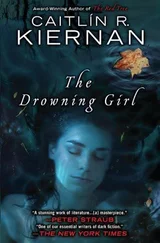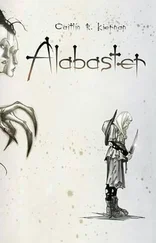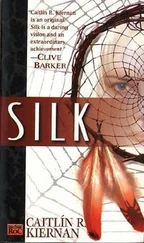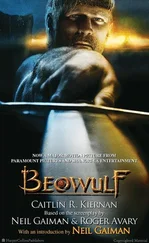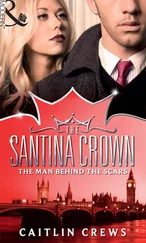Caitlin R. Kiernan - The Red Tree
Здесь есть возможность читать онлайн «Caitlin R. Kiernan - The Red Tree» весь текст электронной книги совершенно бесплатно (целиком полную версию без сокращений). В некоторых случаях можно слушать аудио, скачать через торрент в формате fb2 и присутствует краткое содержание. Жанр: Ужасы и Мистика, на английском языке. Описание произведения, (предисловие) а так же отзывы посетителей доступны на портале библиотеки ЛибКат.
- Название:The Red Tree
- Автор:
- Жанр:
- Год:неизвестен
- ISBN:нет данных
- Рейтинг книги:3 / 5. Голосов: 1
-
Избранное:Добавить в избранное
- Отзывы:
-
Ваша оценка:
- 60
- 1
- 2
- 3
- 4
- 5
The Red Tree: краткое содержание, описание и аннотация
Предлагаем к чтению аннотацию, описание, краткое содержание или предисловие (зависит от того, что написал сам автор книги «The Red Tree»). Если вы не нашли необходимую информацию о книге — напишите в комментариях, мы постараемся отыскать её.
The Red Tree — читать онлайн бесплатно полную книгу (весь текст) целиком
Ниже представлен текст книги, разбитый по страницам. Система сохранения места последней прочитанной страницы, позволяет с удобством читать онлайн бесплатно книгу «The Red Tree», без необходимости каждый раз заново искать на чём Вы остановились. Поставьте закладку, и сможете в любой момент перейти на страницу, на которой закончили чтение.
Интервал:
Закладка:
I know the ugly faces the moon makes when it thinks No one is watching.
I could smell the woodsmoke, and I could hear the hungry crackling of the flames. And all about the tree, but farther out from it than the place where Amanda and I stood, there was a ring of wildly capering figures. She told me not to look at them, just as I’d told her not to look at the dying thing from the pool, but I stole a glance. Just a glance, but it was enough to see that they weren’t exactly human. In the firelight, their hunched silhouettes were vaguely canine, and I said something to Amanda about the coyotes that Constance thought she’d been seeing hanging around the garbage cans. Then Amanda was reciting Edgar Allan Poe, and her voice was as fervent, as fevered, as the swirling, whooping, careening dancers:
And the people — ah, the people—
They that dwell up in the steeple,
All alone,
And who, tolling, tolling, tolling,
In that muffled monotone,
Feel a glory in so rolling
On the human heart a stone—
They are neither man nor woman—
They are neither brute nor human—
They are Ghouls —
And their king it is who tolls —
And he rolls, rolls, rolls,
Rolls
A paean from the bells!
And if I’m to believe anything that Charles Harvey wrote in his unfinished book, the serial killer Joseph Fearing Olney became obsessed with these same lines, writing them over and over in his journals and on the walls of his jail cell. He even wrote them on slips of paper that he would place inside the mouths, beneath the tongues, of the decapitated heads he buried at the base of the red tree. Beneath the tongues he had forever silenced.
In my dream, there was no wind. The air was as stagnant as whatever vile black vitriol had seeped up from the earth and filled in Ramswool Pond. But, even so, the branches of the ancient, wicked oak moved, swaying, creaking, scraping against one another, leaves rattling like dragon scales, as though a hurricane were bearing down upon the land.
“Two billion trees died in that storm,” Amanda said. “Think about it a moment, Sarah. Two billion trees.”
“Not this one,” I replied, gazing up into those restless boughs. “This one seems to have ridden out the tempest just fine.”
“Yes,” she said and smiled. “But don’t think that was all luck, Sarah. It took a lot of blood and sweat to keep her safe when that storm came tearing through. It has always taken a lot of blood and sweat, keeping her safe. Like all doors, she tends to swing open, and so care must be taken to mind the hinges and the latch.”
And I think I asked, “We are talking about the oak?”
And I think that Amanda replied, “If that’s how you see her, yes, we’re talking about the oak.”
I forced myself to make notes in pencil, not long after I awoke, or I’d have lost almost all of this. But even so, I’m having trouble making sense of much of what I scribbled down, half asleep. Partly, that’s because most of the handwriting is illegible, and, partly, because a good deal of what I can read still refuses to yield anything like meaning. I know that I’m filling in some of the gaps. Making some of this up. Approximating. That therapist who wanted me to keep the dream journal, I told her I could not possibly remember my dreams verbatim, and being a writer, it was inevitable that I might invent things as I wrote them out. But she said not to worry. So, right now, I’m trying hard not to worry.
I stood with Amanda, at the altar beneath the red tree, and the dancers howled and skipped around us. Sparkling embers rose into the sky to meet a grotesquely swollen full moon. The moon was still low on the horizon, and only half visible above the tree. I would call the scene hellish, only, at the time, I don’t believe it struck me that way at all. Only my waking mind would render it hellish in retrospect, measured against my waking values and fears and preconceptions. Dreaming, I wanted to accept Amanda’s invitation and “join the dance,” that perverse “ring around the rosie” and whatever it might entail. I wanted to be initiated into the mysteries of the tree, or into the mysteries that the tree merely represented.
“What have you brought for her?” Amanda asked, and I felt entirely inadequate, standing there beneath the single glaring white eye of the moon. At first, I was certain that I’d brought nothing at all, no offering to lay upon the slab that I now understood must have been placed at the foot of this tree long before John Potter, long before the Narragansetts. Watching those giant branches moving against the backdrop of the moon and stars and the indigo nothingness of space, I didn’t need Amanda or Harvey or anyone else to explain to me that this ground was consecrated long ages before the Europeans came in their sailing ships, before tribes of nomads wandered across an icy spit of land connecting two continents. Before any man stood here, and before any tree was rooted in this soil, the land was touched and claimed and set aside.
In the dream, I was wearing the ratty wool coat that Amanda finally gave to Goodwill so she wouldn’t have to see it anymore, so that I’d have to buy a new one. I reached into the coat and retrieved from an inner pocket several pages of Charles Harvey’s manuscript, rolled into a tight bundle and tied off with a piece of green fishing line. I held the pages out so that Amanda could see them.
“Well,” she said, still smiling, “that’s a start.”
“I would have brought more, but he never finished writing it.”
“He couldn’t finish,” she said. “You cannot ever conclude what has no end. It’s like walking the circumference of a circle. You can only get tired and find some arbitrary place to stop.”
“Do you know how tired I am?” I asked her, and she said that she did, and then she took the rolled-up pages of typescript from my hands. I was glad to be rid of them. I remember, distinctly, being extremely glad that they were no longer my responsibility. And that was the sense I had, that they’d been a responsibility I’d shouldered for a very long time.
“Stop looking at the sky,” Amanda said. “You’ll go blind, if you don’t look away.”
And so, instead, I looked down at the altar stone, seeing clearly for the first time all the sacrifices painstakingly laid out upon or near the stone, or set in amongst the roots of the tree, or tucked into knotholes (I have always called these “Boo holes,” after Boo Radley in To Kill A Mockingbird ). There were bloodier things than murdered rabbits, but I do not think it will serve this narrative to describe them in detail. Even that monster Joseph Fearing Olney would have felt himself inadequate before that banquet. And I knew it was a banquet, that there would soon be a feast, of one sort or another.
“Hercules did not slay the child of Typhon and Echidna,” Amanda said, speaking very softly. She bent down and lifted a white votive candle from the altar stone. “In severing that immortal head, he only set the Hydra free, so that she could take her rightful place in the Heavens.”
“Echidna,” I said, and the word brought to mind nothing but those spiny little egg-laying mammals from New Guinea. Amanda nodded, and with the candle, she set the pages I’d given her on fire. Some of the ashes settled across the altar, while others rose upwards, like the embers of the bonfire, becoming lost in the swaying branches of the red tree.
And Amanda said to me, “And again she bore a third, the evil-minded Hydra of Lerna, whom the goddess, white-armed Hera, nourished, being angry beyond measure. . ” Then she paused, the flame having burned down very near to her fingertips, and she dropped the smoldering remains of my offering onto the stone with everything else. “Only, Mother Hydra was not evil-minded, though I well imagine Hera was angry,” Amanda said, but did not bother to elaborate.
Читать дальшеИнтервал:
Закладка:
Похожие книги на «The Red Tree»
Представляем Вашему вниманию похожие книги на «The Red Tree» списком для выбора. Мы отобрали схожую по названию и смыслу литературу в надежде предоставить читателям больше вариантов отыскать новые, интересные, ещё непрочитанные произведения.
Обсуждение, отзывы о книге «The Red Tree» и просто собственные мнения читателей. Оставьте ваши комментарии, напишите, что Вы думаете о произведении, его смысле или главных героях. Укажите что конкретно понравилось, а что нет, и почему Вы так считаете.

